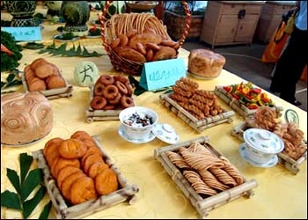(单词翻译:单击)
Xi Wuyi, an expert on Marxism at the Chinese Academy of Social Sciences, recently wrote on her Sina Weibo account that she advises against national legislation on halal food.
近日,中国社会科学院马克思学院的专家习五一在她个人的新浪微博上写道,她反对国家对清真食品立法。
Xi said such legislation "violates the principle of separation of State and religion" and if the bill is enacted, it will interfere with the practices of religious followers in different regions and may threaten "China's national security strategy."
习五一表示,这样的立法将违背政教分离的原则,如果该法案生效,它将影响到不同地区教徒的行为,可能会威胁到中国国家安全策略。
She refused an interview request from the Global Times on Sunday, explaining that the topic is too "sensitive."
上周日,她拒绝了《环球时报》的采访请求,并解释称这一话题“太过敏感”。

The State Council entrusted the Ethnic Affairs Committee of the National People's Congress (NPC) with drafting national regulations on halal food in 2002.
2002年,国务院委托全国人民代表大会民族事务委员会起草关于清真食品的国家规范。
After reviewing a proposal by lawmakers saying that disputes were triggered by issues related to halal food, the Ethnic Affairs Committee of the NPC suggested speeding up passage of the legislation in both 2012 and 2015, saying that the legislation is "reasonable and necessary" as it relates to "national unity and social stability," according to the committee's official website.
据委员会官方网站显示,在初步审议了立法者的提案后,关于清真食品事件的争议一触即发,2012年和2015年,全国人民代表大会民族事务委员会都建议加快立法进程,称该立法是“合理和必要的”,因为它和国家团结、社会稳定息息相关。
Several Muslims smashed the facilities of a bakery in Xining, Northwest China's Qinghai Province in May 2015 after discovering non-halal ingredients, such as pork sausages and ham, in its delivery van.
2015年5月,几个穆斯林砸毁了中国西北青海省西宁市一家面包店的设备,因为他们发现送货车里有猪肉、香肠和火腿之类的非清真食品成分。
Hundreds of Muslims in Xi'an, Shaanxi Province, also took to the streets in May 2015 to demand a ban on local halal restaurants' sale of alcoholic beverages, which are forbidden by the Koran.
同样是在2015年5月,陕西省西安市的上千名穆斯林游街要求禁止当地清真餐厅售卖酒精饮料,这一规定是被《古兰经》所禁止的。
Ma Yuxiang and Ma Zhipeng, professors at Northwest University for Nationalities in Lanzhou, called for the legislation in 2014, saying misconduct by halal restaurants has jeopardized national unity.
2014年,兰州西北民族大学教授马宇翔和马志鹏呼吁立法,称清真餐厅的不当行为将危害民族团结。
However, Wei Dedong, vice-dean of the School of Philosophy at the Renmin University of China, told the Global Times that a national regulation would authorize the secular government to define Islam-related issues, stressing that the legislation should be "cautious."
但是,中国人民大学哲学院副主任魏德东告诉《环球时报》,国家立法将授权非宗教政府来定义穆斯林相关问题,他强调,立法应该“谨慎”。


